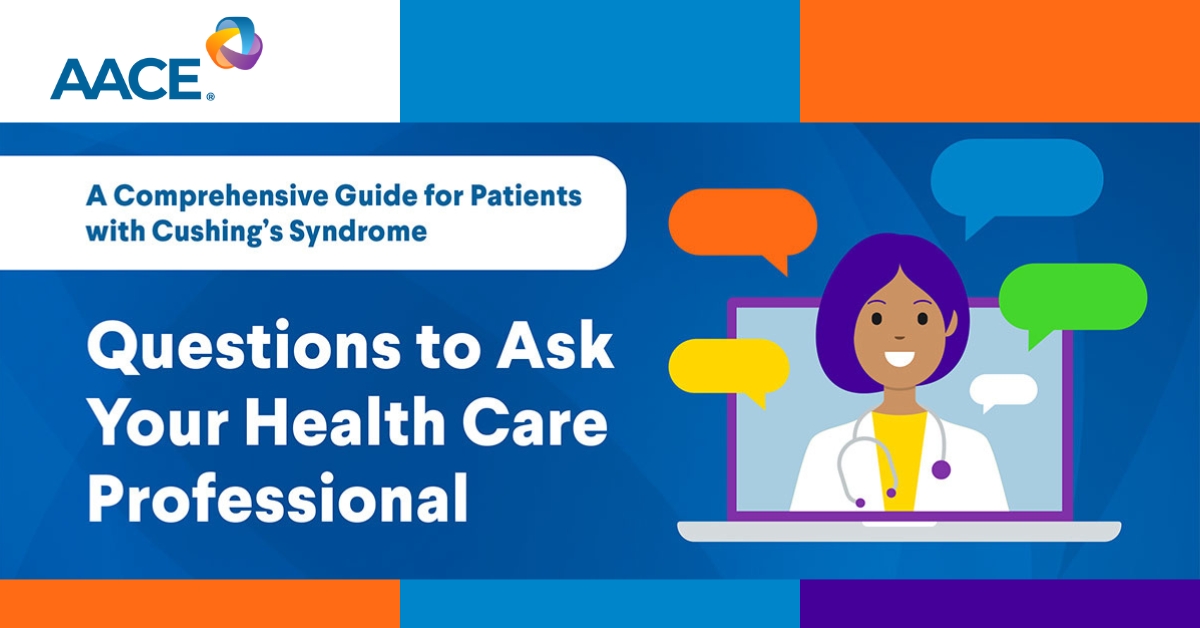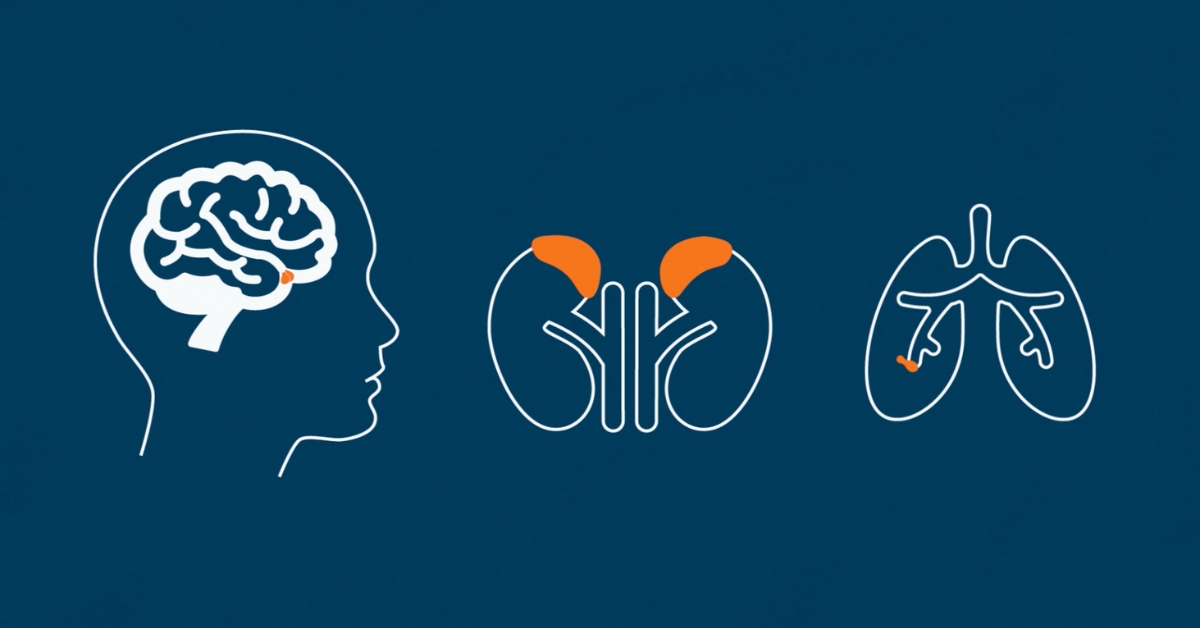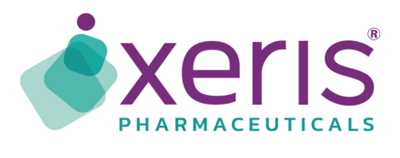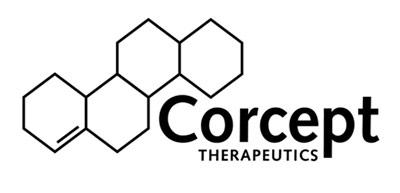Cushing's syndrome is a rare condition that occurs when your body produces too much cortisol for an extended period. This condition is also known as hypercortisolism.
Cortisol is your body's main stress hormone. It helps control your metabolism by regulating how fats, proteins, and carbohydrates are made, stored, and broken down. It also suppresses inflammation, regulates the immune system, helps to maintain blood pressure, increases blood sugars, and controls the sleep/wake cycle. Cortisol is produced and released from your adrenal glands, which sit on top of your kidneys.
There are two main causes of Cushing's syndrome:
- Medications: Most commonly, it's caused by taking certain steroid medications for conditions like asthma, lupus, and rheumatoid arthritis for a long time.
- Tumors: Increased cortisol production can be caused by a tumor in your pituitary gland or adrenal glands, or more rarely somewhere else, such as the lungs or pancreas.
- When the tumor arises in the pituitary gland, this is most commonly known as Cushing's disease.
- When the tumor arises in the lungs or abdomen, causing your adrenal glands to produce too much cortisol, this is called ectopic Cushing's syndrome.
- When the tumor arises in the adrenal glands, it is referred to as an adrenal Cushing's syndrome, as the tumor directly causes the glands to produce too much cortisol.
An increase in cortisol in your body can lead to multiple complications, such as:
- Weight gain, especially in the lower abdomen
- Bone loss or osteoporosis
- High blood pressure
- High blood sugars or diabetes
- Infections
- Loss of muscle mass
- Muscle weakness
Learn more about Cushing's syndrome, its signs and symptoms, screening, diagnosis, treatment, and how to participate in managing your health through shared decision-making with your health care professional.
Many of the following symptoms are common to other conditions, so Cushing's syndrome can be hard to diagnose. That's why it's important to see an endocrinologist (a health care professional who specializes in hormone conditions). An endocrinologist can help screen you for increased cortisol levels to figure out if you have Cushing's syndrome.
Signs and symptoms of Cushing’s syndrome include:
- Bruising easily
- Unexplained weight gain
- An increase of fat around your face or the back of your neck
- Stretch marks on your midsection
- Weak muscles
- Thin arms and legs
- Fatigue
- Confusion
- Depression
- Anxiety
- Difficulty with focus and concentration
- Difficult-to-control emotions, such as anger
- Irregular period
- Loss of libido
- Feeling hot and sweaty often
- Insomnia, waking in the middle of the night unable to get back to sleep
Complications from high cortisol can include:
- Weight gain, especially in the lower abdomen
- Bone breaks, osteoporosis
- High blood pressure
- High blood sugars or diabetes
- Infections
- Loss of muscle mass
- Muscle weakness
- Blood clots
- Stroke
To confirm you have Cushing's syndrome, your health care professional will perform screening tests. These tests will help determine if your cortisol levels are higher than normal. It's not uncommon to require multiple tests, which may take weeks to months for conclusive results.
- Dexamethasone suppression test: You will be given a medication called dexamethasone at night, and then your blood will be drawn the next morning. The results measure your cortisol levels and show if they drop after dexamethasone, as would normally happen.
- Saliva tests: Samples are collected close to bedtime to find out if your cortisol levels drop in the evening, as is normal.
- Urine tests: Samples are collected over a 24-hour period to see if your cortisol levels are elevated.
If a Cushing's syndrome diagnosis is confirmed, your health care professional will also request imaging, like a CT or MRI scan, to look more closely at your pituitary gland or adrenal glands. A specialized test called the inferior petrosal sinus sampling may also be performed to determine whether Cushing's syndrome is due to a tumor in the pituitary gland or a source outside the pituitary gland. If it is suspected to be from a source outside the pituitary gland, your health care professional will also recommend imaging of your lungs or abdomen for tumors.
If you are found to have Cushing's syndrome, your health care professional will work with you to create an individualized treatment plan.
If you developed Cushing's syndrome due to steroid medications you are taking for other conditions, your health care professional will help you manage your symptoms for those conditions. It's important that you do not stop taking the medications unless directed by your health care professional. If right for your condition, your health care professional may suggest slowly reducing your steroid medications and eventually stopping them to manage your Cushing’s syndrome symptoms.
When Cushing's syndrome is caused by a tumor that can be detected by imaging, treatment plans often involve surgery to remove the tumor. If you have Cushing's disease due to a tumor in the pituitary gland, surgery will focus on removing the tumor. With adrenal Cushing's syndrome, you may undergo an adrenalectomy (removal of one or both adrenal glands). With ectopic Cushing's syndrome, surgery may be done to remove the tumor.
If surgery does not result in remission, then a repeat of surgery, medications, and/or radiation therapy may be considered.
Most likely, the treatment plan that your health care professional creates will include a combination of options to help reduce your cortisol levels and manage your symptoms.
Insurance Coverage for Cushing's Syndrome
Because of the specialized treatments for Cushing's syndrome, costs can be high. Health insurance often covers surgery and medications. But it may not cover some newer or experimental tests or treatment plans.
Before you begin screening or treatment for Cushing's syndrome, check with your insurance provider. Every insurer is different, so it's important to understand your coverage and any possible out-of-pocket costs, including deductibles, copayments, and coinsurance costs. You may need to work with a patient advocate or case manager at your insurance company so they know you are dealing with a complicated disease and will be less likely to deny claims and pre-authorizations.
Patient support groups like the ones listed below may also be able to help you make sense of your total costs, guide you through the insurance processes, and find additional resources.
Your prognosis (projected outcome) will depend on several factors, including:
- The type of treatment you receive
- The timeliness of that treatment
- The size and type of tumor (if applicable)
- Your other conditions or complications
Symptoms can get worse over time or even be life-threatening if left untreated. It's important to complete your treatment plan with your health care professional. A majority of patients achieve the goal of long-term remission, but what it takes to get there is different for each of them.
If you are being treated for Cushing's syndrome, be sure to understand the full impact of your symptoms and treatment. If you are not sure where to start, download our guide, Questions to Ask Your Health Care Professional.
Seeing your health care professional regularly for follow-up appointments to monitor your symptoms and your cortisol levels will help optimize your long-term health.
Living With Cushing's Syndrome
Living with the symptoms of Cushing's syndrome can be difficult and feel very lonely at times because it’s not easy for others to understand the full extent of what you are experiencing. Connecting with a support group is an excellent idea because you will be able to talk with others who have the diagnosis, and they can give you the patient perspective on living with this disease and navigating all stages of the journey, from diagnosis through long-term remission.
It's also important to be honest with your health care professional so they can better understand what is most important to you and what symptoms affect you the most. They want to help you manage the physical and emotional challenges that come with Cushing's syndrome. And they want to make the best referrals to other specialists who can help with things that they cannot.
Cushing's Syndrome and Fertility
Individuals with untreated Cushing's syndrome may have issues with fertility. Women may have trouble becoming pregnant. There may also be a higher likelihood of pregnancy loss. If you have Cushing's syndrome and are trying to become pregnant, talk to your health care professional. They can explain your options for future family planning. Many patients who have successfully treated their Cushing’s have gone on to have healthy pregnancies.
Patient Perspectives

We rely on our healthcare providers to recognize signs and symptoms of common diseases and illnesses so they can do a prompt workup and move right to treatment, often within a single appointment. Cushing’s has more than two dozen identified signs and symptoms, but none of them are specific to a disease of dysregulated cortisol ONLY. It can take a long time to get a proper diagnosis as our doctors treat each symptom individually and schedule time to see progress and set follow up appointments in the future. Far too many patients report gaslighting and refusal to screen along the way, which can make it feel at times like no one believes you and you’re never going to get better. It is vital for patients who suspect high cortisol to take an active role in their healthcare decisions because there’s so much to know about the diagnosis, treatment options, and short- and long-term health implications and considerations. There’s also a limit to how much time you should stay with a provider who delays or refuses a simple screening to rule in or out a disease with so many common signs and symptoms.
I would encourage any patient who feels frustrated with any element of the journey from suspicion, through diagnosis and treatment, and into long-term remission, to connect with a peer group or patient advocacy organization that is active in research and has a regular schedule of support calls/meetings and other opportunities for patients to learn, ask questions, and engage with others in safe spaces. Cushing’s is a disease that seems impossible to fully understand without this type of peer group, because there’s so much more to it than just the clinical details.
LE, Pituitary

I think it is important to take an active role in our healthcare decisions because we know our bodies best.
When we actively engage with our providers, we become more informed about our health conditions, treatment options, and preventive measures.
Being involved in decisions helps facilitate a more open and collaborative relationship with doctors, nurses, and other healthcare professionals. This ensures your concerns are heard and that treatment plans reflect your preferences. Patients who actively participate in their care are often more satisfied with the decisions made, as they feel more in control of their health and well-being.
JD, Pituitary
The following resources, support groups, online communities, and advocacy groups offer information and support for people living with Cushing's syndrome:








